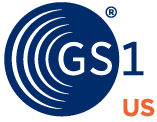Trading Partners Can Reduce Waste in the Supply Chain With Optimized Packaging Solutions
EWING, NJ - November 19, 2020 - GS1 US has published the “Best Practice Guideline for Sustainability in Packaging Materials,” created by apparel and general merchandise leaders to help industry incorporate sustainable packaging practices in the supply chain. It provides guidance on the selection of packaging materials and processes to minimize non-recyclable waste.
The new guideline is focused on the use of polybags, packing techniques and materials, and cartons. It was developed by industry partners to address dual challenges: increasing reliance on omni-channel fulfillment and the growing demand for sustainable packaging.
The new guidance, developed for both suppliers and retailers, is applicable to all North American companies trading products in the general merchandise and apparel sector. This includes, but is not limited to, cosmetics, jewelry, footwear, fashion accessories, apparel and sportswear, sporting goods, home fashion and small appliances.
Included in the guidance are recommendations for the use of polybags (typically low-density polyethylene (LDPE)-based plastic bags) that protect products during transit from manufacturing sites to distribution centers and onwards to retail stores and consumers’ homes (through e-commerce). Best practices covered in the guideline include rightsizing of packaging components and optimizing polybag thickness to reduce plastic waste, as well as guidance on recyclability, bag closures, labels and carton fulfilment.
Angela Fernandez, vice president of community engagement, GS1 US noted, “This new guideline is designed to help supply chain partners identify simple packaging parameters that can be adjusted to reduce waste without compromising product protection. The best practices suggested by the workgroup can improve performance on sustainability initiatives while enhancing customer experiences through the delivery of minimally packaged products.”
Initiative members will continue to evaluate additional sustainability measures in future releases, as the needs of industry evolve. The guideline can be downloaded from the GS1 US website. For more information about the GS1 US Apparel and General Merchandise Initiative, please visit https://www.gs1us.org/agminitiative.
About GS1 US
GS1 US®, a member of GS1 global, is a not-for-profit information standards organization that facilitates industry collaboration to help improve supply chain visibility and efficiency through the use of GS1 Standards, the most widely used supply chain standards system in the world. Nearly 300,000 businesses in 25 industries rely on GS1 US for trading partner collaboration that optimizes their supply chains, drives cost performance and revenue growth, while also enabling regulatory compliance. They achieve these benefits through solutions based on GS1 global unique numbering and identification systems, barcodes, Electronic Product Code (EPC®)-based RFID, data synchronization and electronic information exchange. GS1 US also manages the United Nations Standard Products and Services Code® (UNSPSC®). For more information, please visit https://www.gs1us.org.

